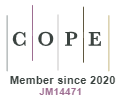The influence of organizational values in the process of technology transfer: a brazilian study
DOI:
https://doi.org/10.5585/iptec.v10i2.21846Palavras-chave:
Organizational values, Technology transfer, Brazilian companies.Resumo
The main objective of this study is to investigate the influence of organizational values in the process of technology transfer in Brazilian enterprises. The present study is theoretical and seeks to better understand the organizational values and sources of technology transfer in Brazilian organizations. The methodology of this exploratory research consists of a quantitative approach that utilizes two survey instruments developed by Pinto (2006). Findings are based on research including four companies that won the Brazil Innovation Award in 2017 and belong to different industries. Firstly, the results show the absence of significant variations in the data provided by the small sample and towards cohesion in organizational values and preferences for the sources of technology transfer. Secondly, this research emphasizes the influence of cultural values on corporate practices and the decision-making process within these organizations.
Downloads
Referências
Abu, Z., Aun, I., & Oluwasanmi, O. (2018). Technology transfer and entrepreneurial development in the value chain system of the Nigerian oil and gas industry. Pacific Journal of Science and Technology, 19(1), 50-54.
Adebayo, O., Olagunju, K.O., Ogundipe, A., Salman, K. K., & Francis, P. (2017). Scaling-up agricultural innovation for inclusive livelihood and productivity outcomes in sub-saharan Africa: The case of Nigeria. African Development Review, 29(2), 121-134.
Amalia, Lia & Marpaung, Ronald, (2019). The Impact Of Work Culture, Competence and Motivation On The Performance Of Permanent Employees In Telaga Hikmah Palm Oil Mill. Advances in Economics, Business and Management Research, volume 100 International.
Bengoa, A., Maseda, A., Iturralde, T., & Aparicio, G. (2021). A bibliometric review of the technology transfer literature. The Journal of Technology Transfer, vol. 46. No.5, 1514–1550. https://doi.org/10.1007/s10961-019-09774-5
Bolatan, G. I. S. & Gozlu, S., (2018). The impact of technology transfer performance on quality performance. Proquest - Ege Academic Review, Volume 18.
Burgelman, R. A., Christensen, C. H., & Wheelwright, S. C. (2004). Strategic management of technology and innovation. (4th ed.). Boston: McGraw Hill.
Deitos, M. L. (2002). A Gestão da Tecnologia em pequenas e Médias Empresas. Cascavel: Edunioeste.
Efrat. K. (2014). The direct and indirect impact of culture on. Technovation. 34, 12-20, http://dx.doi.org/10.1016/j.technovation.2013.08.003
Good, M., Knockaert, M., Soppe, B., & Wright, M. (2019). The technology transfer ecosystem in academia. An organizational desing perspective. Technovation, 82-83, 35-50. https://doi.org/10.1016/j.technovation.2018.06.009
Kriemadis, T., Pelagidis, T., & Kartakoullis, N, (2012). The role of organizational culture in Greek businesses. Emerald - Journal of Business Vol. 7 No. 2.
Lager, T., & Hassan-Beck, H. (2021). Managing Inter-Firm Process Technology Transfer: Success Factors and Organisational Perspectives. International Journal of Innovation Management, 25(02), 2150018. https://doi.org/10.1142/S1363919621500183
Lehmann, E.E. & Seitz, N. (2017). Freedom and innovation: a country and state level analysis. The Journal of Technology Transfer, 42(1).
Lemon, M. & Sahota, P. S. (2004). Organizational culture as a knowledge repository for increased innovative capacity. Technovation, 24, 483-498.
Miesing, P., & Tang, M. (2018). Technology transfer institutions in China: A comparison of value chain and organizational structure perspectives. Journal of Technology, 3(3), 15-57.
Özçelika, Gaye; Aybasb, Meryem & Uyargilc, Cavide. (2016). High Performance Work Systems and Organizational Values: Resource-based View Considerations. Procedia - Social and Behavioral Sciences, 235, pp.332–341
Pinto, L. A.B. (2006). A relação entre a cultura organizacional e os mecanismos de transferência de tecnologia na Metalúrgica Santa Cecilia S/A. Dissertação apresentada ao Programa de Pós-Graduação em Engenharia de Produção. Ponta Grossa: UTFPR.
Santos Silva, L. C, Kovaleski, J. L, Gaia, S., & Sampaio, A. S. (2015). Processo de transferência de tecnologia entre Universidade-Indústria por intermédio dos núcleos de inovação tecnológica. Interciência, 40(10), 664-669.
Schwartz, S. H. (2006). Há aspectos universais na estrutura e no conteúdo dos valores humanos? In. M. Ros & V.V. Gouveia (Eds.), Psicologia social dos valores humanos: desenvolvimentos teóricos, metodológicos e aplicados (pp. 55-85). São Paulo: Senac.
Setiawan, R. C; Susanti, E. & Syan, T. Y. R. (2019). The Effect of Organizational Culture on Technology Transfers and Company Performance. Science, Engineering and Social Science. Vol. 3, No. 3. pp.32-37
Strategy and Brasil. (2017). Prêmio Valor Inovação Brasil 2017. Disponível no site https://www.strategyand.pwc.com/br/inovacao-brasil#Ranking acessado.
Tamayo, A. (2007). Impactos dos valores da organização sobre o estresse ocupacional. Revista de Administração Contemporânea, 1(2), pp. 20-33, maio/ago.
Vargas, M. I. R. (2013). Underlying dimensions and organizational values in organizational learning: Strategy for capacity building in developing countries. J.Technol. Manag. Innov, (8).
Vasconcelos, E. (1992). Integrando P&D à área de produção da empresa. In: Gerenciamento da Tecnologia: um instrumento para a competitividade empresarial. São Paulo: Editora Edgard Blucher Ltda.
Viera, M. S. O. C. & Gomes, D. C. (2013). Valores organizacionais numa instituição pública de ensino do RN. HOLOS, 3(29), 77-89.
Downloads
Publicado
Como Citar
Edição
Secção
Licença
Direitos de Autor (c) 2022 Revista Inovação, Projetos e Tecnologias

Este trabalho encontra-se publicado com a Licença Internacional Creative Commons Atribuição-NãoComercial-CompartilhaIgual 4.0.






